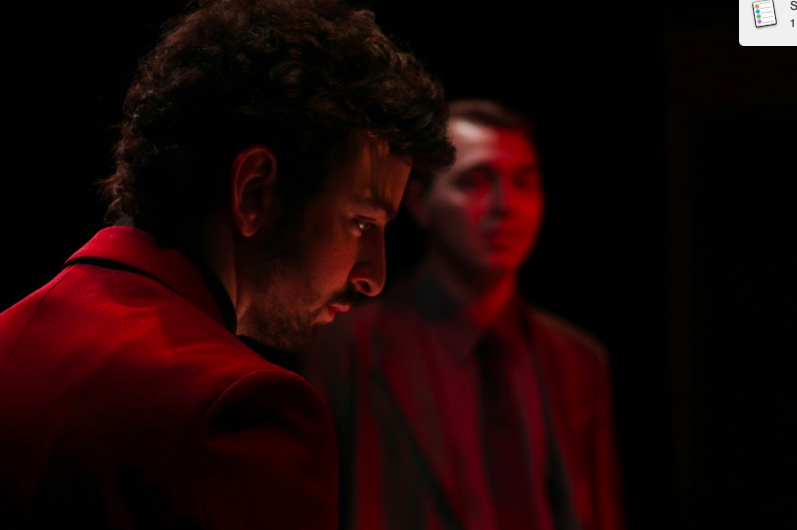The name Judas is universally recognizable. Though it has obviously gained recognition through centuries of retelling the story of Jesus of Nazareth, it has become synonymous with one word: traitor. Nomadic Theatre’s The Last Days of Judas Iscariot tries to answer the question of who Judas really was. As director Velani Dibba (SFS ’17) asks, what can make a man betray his best friend? He did betray Jesus, of course, and he received his judgement. But what would that trial have looked like? Who is Judas?
The Last Days of Judas Iscariot puts Judas on trial as an ambitious lawyer tries to get him an appeal. It follows the procedures of that trial closely, and as the plot develops, witnesses from Judas’ time as well as ours are summoned, questioned, and cross-examined in this Downtown Purgatory court. The set design enhances the theatrical experience by seating the audience around the courtroom, encouraging them to feel as though they are the jury—the lawyers arguing their case before the viewers.
Driving the story are the two lawyers, Fabiana Cunningham for the defense and El Fayoumy for the prosecution, and the captivating dynamic between their clashing personalities. Cunningham initiates the plot by demanding that the judge hear Judas’ appeal. The judge initially dismisses the seemingly ludicrous appeal on behalf of Judas Iscariot, but she perseveres, determined to argue her case. Enter El Fayoumy. As he bursts into the courtroom, it immediately becomes obvious that the two characters are opposites in every way. Cunningham is competent and patient, while El Fayoumy dashes in having left his license in his “other suit.” El Fayoumy relishes the attention of the court and delivers each statement with a flourish; Cunningham is simply trying to help her client.
Allison Lane (COL ’19) performs the role expertly, conveying Cunningham’s no-nonsense approach and her vexation at the court’s antagonism without going so far as to lose the audience’s support. She has the confidence to portray the hard-nosed lawyer convincingly and the emotional range the role requires. Ben Lillian (COL ’18) as El Fayoumy is hilarious, performing his bombastic character with consistent energy and flair throughout the show’s considerable running time. Lillian and Lane form an amusing relationship, El Fayoumy’s brazen cheekiness the foil to Cunningham’s seriousness.
Theatre-goers familiar with the story of Judas likely have an opinion on whether he’s guilty, but this trial would lead anyone to reexamine their view. It’s hard not to keep a mental tally of the many arguments and witness statements for and against Judas, as more is revealed about who he was and what reality he lived in. Caiaphas the Elder (Thomas Shuman, COL ’17) is convinced that betraying Jesus was Judas’ idea, but, as Sigmund Freud (Chris Phillips, MSB ’20) testifies, Judas’ suicide demonstrates that he was deeply disturbed. The story of Judas 2,000 years ago is distant and inaccessible to everyone, but the play imagines the characters involved in terms contemporary audiences can appreciate, from leather jacket-wearing, cussing Saint Monica (Emily Lett, COL ’17) to jarhead Pontius Pilate (David Toledo, MSB ’19).
The modern takes on the characters are humorous, but The Last Days of Judas Iscariot faces the complex question of Judas’ damnation head-on. Judas is a complicated and ultimately broken man. Andrew Schneider (COL ’19) plays the character well, conveying Judas’ struggle with his guilt. Scenes from Judas’s life along with testimony from the apostles, the people who knew him best, work together to create a comprehensive, relatable understanding of the historical figure. There lies the success of The Last Days of Judas Iscariot. By helping people to see themselves in the character of Judas, it enables them to begin to reckon their own guilt with hope of salvation.






